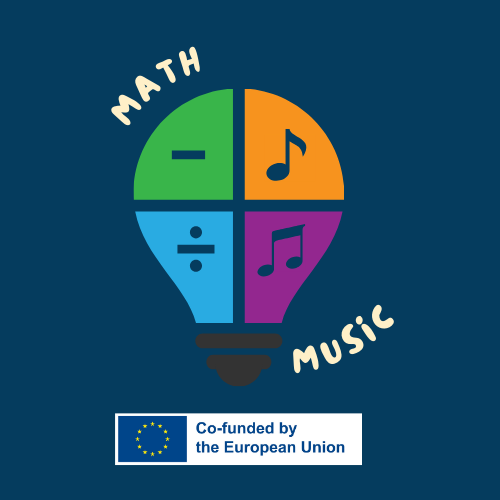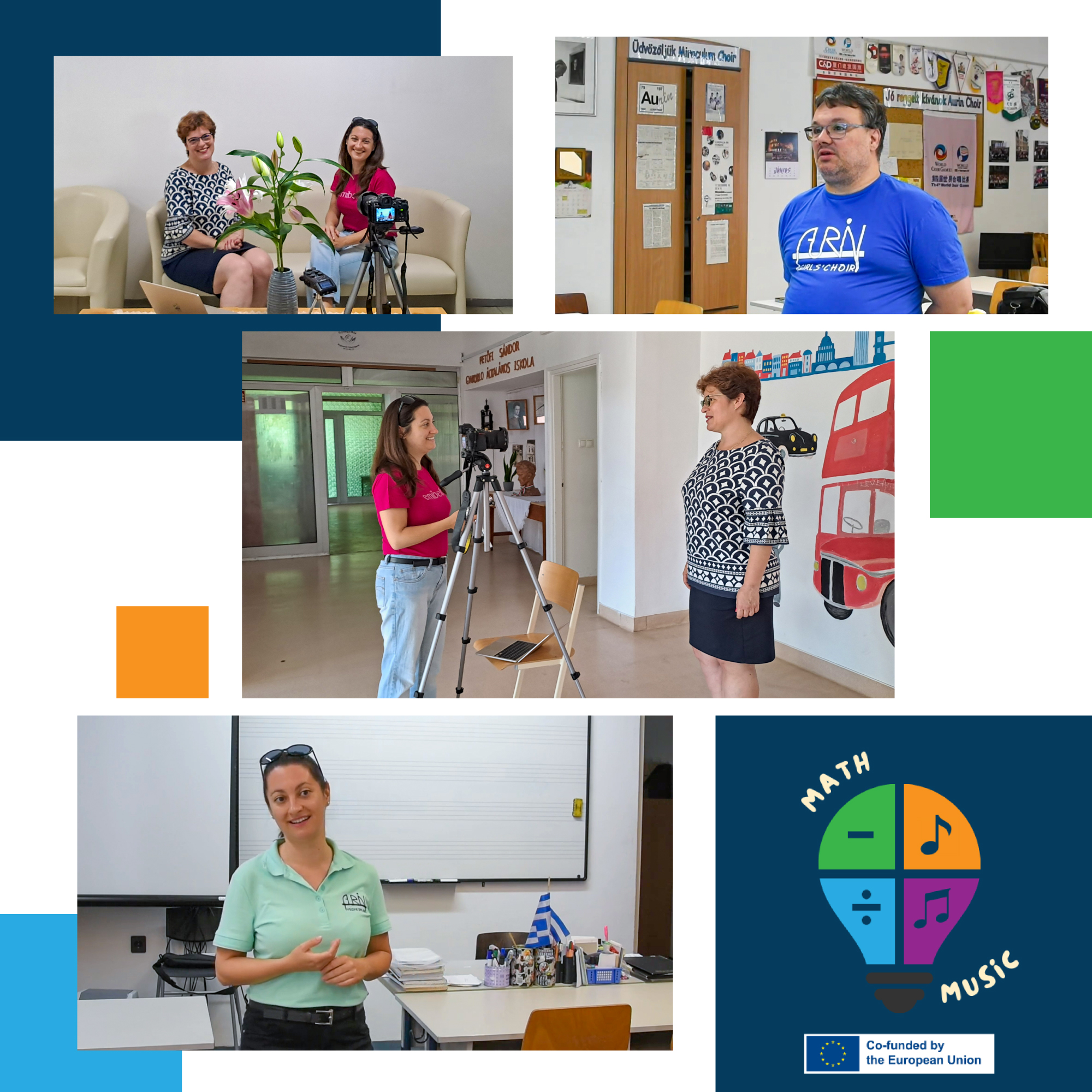About the Project
The aim of the Ma.Mu. project is to revolutionize school education by integrating traditional mathematics teaching with music-based activities. This approach is particularly beneficial for students who struggle with STEM subjects—especially those affected by dyscalculia. By harnessing the synergies of a diverse international partnership, our goal is to create a more inclusive and engaging learning environment.
Our Team
The project is represented by Edit Pálinkás (project coordinator) and László Durányik (choral conductor), who brings his teaching experience and musical expertise to the initiative. They are joined by external experts: Judit B. Horváth, English teacher at Petőfi Sándor Catholic Primary School; Dr. Ágnes Horváth, retired university professor with extensive experience in youth training; and Izabella Szigeti, university student and volunteer. Their combined knowledge and dedication are key to the success of the project.
All graphical elements, task designs, presentations, as well as photographic and video documentation of the Hungarian-developed materials are created by Edit Pálinkás – Divisart.
About the Lead Partner: Bellezza DIeCI
Bellezza DIeCI is an Italian association founded by dedicated young volunteers. The organization is independent, impartial, and apolitical, focusing on inclusion, diversity, and the fight against discrimination and violence. Their mission is to support socially vulnerable groups, including individuals with disabilities, health issues, and those facing educational, cultural, social, economic, or geographical barriers. As a non-profit entity, Bellezza DIeCI is committed to civic engagement and solidarity, working to reintegrate disadvantaged communities into society.
The First Steps: Online Trainings
Our collaboration began with a virtual kick-off meeting, bringing together all four partner organizations. This was followed by an online training held over five Mondays between May and June, focusing on the challenges of dyscalculia and the benefits of music-based learning. The sessions were led by facilitator Agnese Berton and trainer Maria Sorrentino, who aimed to increase educators’ understanding of dyscalculia and explore how music can serve as an effective tool in math instruction.
A highlight of the training was a presentation by László Durányik, who spoke about music education as a joyful, engaging experience for children. He demonstrated how musical elements such as rhythm and notation can be taught in enjoyable ways—particularly beneficial for students with learning difficulties. His creative techniques illustrated how to turn learning into a fun, interactive process that helps students understand and internalize complex concepts.
Looking Ahead: Autumn Workshop in Kecskemét
In addition to the online training, a five-day workshop will be held in Kecskemét in autumn 2024, focusing on introducing our newly developed music-based methods into math education. As we prepare for the event, our goal is to explore the connections between music and mathematics in greater depth, with particular emphasis on strategies to support children with dyscalculia.
However, this project is not just about improving teaching techniques—it also aims to foster a sense of community and shared purpose, which can have a lasting impact on Kecskemét. Through our participation, local teachers and students will gain access to innovative methodologies and international expertise that can raise the overall standard of education in our city. Furthermore, the project promotes intercultural exchange and mutual understanding among the participating countries, enriching the educational experience of all involved.
On a broader scale, the Ma.Mu. project has the potential to reshape the way we think about education worldwide. By developing and sharing innovative teaching methods, we aim to make learning more accessible and enjoyable for students with learning difficulties. This approach not only supports academic success but also fosters creativity and a love for learning.
We are eager to share our progress and continue working together toward a brighter, more inclusive future for all students.


